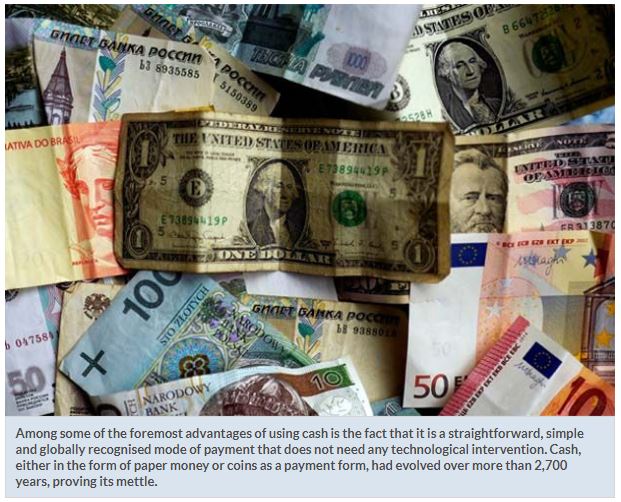Malaysia: Cash is still relevant, despite e-payment’s rise
WHILE the global trend is largely moving towards the adoption of e-payment systems, cash or paper money will still be here to stay – at least in the near to medium term.
Cash, which has been around for more than two millenniums, still has its role to play in the economy.
Among some of the foremost advantages of using cash is the fact that it is a straightforward, simple and globally recognised mode of payment that does not need any technological intervention.
Cash, either in the form of paper money or coins as a payment form, had evolved over more than 2,700 years, proving its mettle.
According to recorded history, coins were first introduced in the area now known as modern Turkey back in 600 BC while the Chinese was the first to use paper money in 770 BC.
Interestingly, China is now prominently at the forefront of encouraging e-payment usage.
Professor of Economics at Sunway University Business School Yeah Kim Leng told StarBiz that there were various advantages of using e-payment systems but cash is still here to stay at least in the near term.
“E-payment systems are more efficient compared to cash. This means it is cheaper in the long run for vendors and businesses and this is part of the advantages of a cashless society, ” Yeah said.
He also noted that e-payment systems were more transparent as it gives governments the ability to track transactions.
“There is an audit trail with e-payment systems and this information can be used for other purposes: including analytics marketing and the government can use it to track purchasing behaviour, ” Yeah said.
“This can also help the government in economic analysis as it provides real-time monitoring of consumption and businesses, ” he added.
On the flip side, Yeah said there is still the element of confidentiality that is associated with the use of paper money for transactions that require some form of confidentiality.
“Digital payments will always have an audit trail. Confidentiality issues still needs to be addressed by e-payment systems so that it can gain acceptance by more people, ” Yeah said. “At the same time, the government has to prevent money laundering and illicit financial flows.
“I think it is possible to address both of these issues together, ” he added.
He explained that it is possible for legal transactions to maintain some kind of privacy and confidentiality.
Yeah said paper money will still be around for the time being unless there is complete Internet coverage everywhere, realistically speaking.
“If e-payments are to completely replace cash, there needs to be a 100% digitalisation of the economy.
“There is also a risk to disruptions to the digital connection, and a big breakdown at any one time can mean a collapse in financial systems and can spread to be a systemic risk to the economy, ” he said.
Source: https://www.thestar.com.my/business/business-news/2020/09/28/cash-is-still-relevant-despite-e-payments-rise


 Thailand
Thailand




